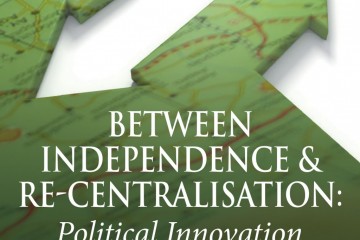
The Metropolitanisation of Nationality? City-regions, autonomy and the territorial state
The recent plebiscite on Scottish independence has triggered a much wider debate in the UK about the organisation of state power in institutional and territorial terms.
In particular, the role and economic position of the main cities vis-à-vis the state have raised headlines about ‘cities going independent’, such as ‘Devo Met’ (The Economist, 25 Oct 14). This not only continues the strong focus on the economic dimension of statehood and its territorial and institutional manifestation, but also that of identity and the sense of community (commonality). No longer, so it seems, does nationality operate automatically through the ‘nation state’ as a territorial and governmental entity. Instead, metropolitanism is encouraging, perhaps requiring, a ‘reterritorialisation of politics’ (Sellers and Walks, 2008). This growing emergence of an urban (metropolitan) dimension to national (and international) discourses on shared values, imaginations and common purpose has come to challenge the nationalisation thesis formulated as part of ‘political modernisation’ (Hofferbert and Sharkansky, 1971), and its primary focus on territorial states as expressions of an existing and cohesive civil society, or as ‘nationalisers’ seeking to shape a national identity (Brubaker, 1995). This once prevailing thesis propagates national contexts as dominant, hegemonial conditioning factors which reach across states, including regional and local identities and discourses, whether urban or not. The understanding of nationality has thus been viewed from a top-down perspective of discursive nationality, and corresponds with the territorial view that cites, being down the scalar hierarchy from the state, are automatically an integral part of that – bigger – entity – geographically, institutionally and discursively.
Such, in effect, triple hierarchisation – where territory, institutional power structures and discourse of identity and belonging (communality) sit in parallel hierarchical arrangements – is now being challenged by a growing urban/metropolitan voice stepping out of the seemingly homogenous sonority of a national discursive ‘backcloth’. This may appear as a reverse step to the integrative, even homogenising, effects of nationalising politics (Caramani, 2004), seeking to overcome spatial and societal differences in identities and sense of belonging. From such a (conventional) perspective, states are seen as the ‘natural’ rallying points of national discourses of self-determination and their geographic manifestation.










